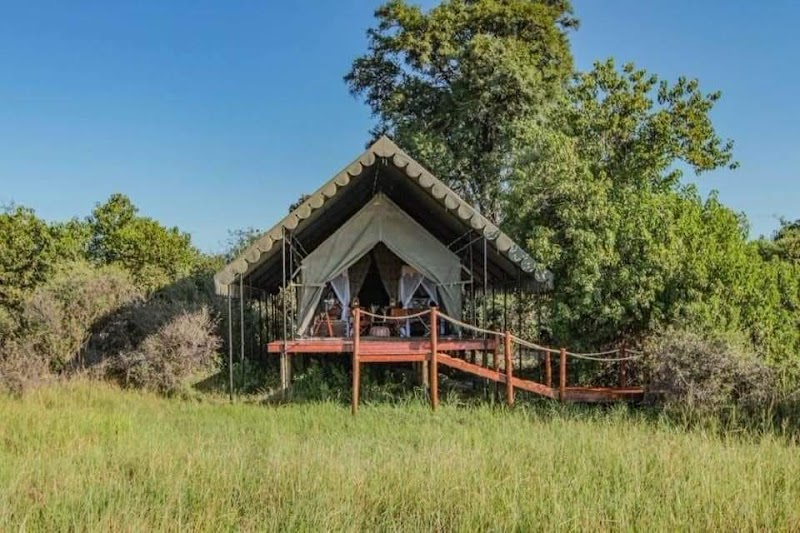
Gweta Festival: Experience Botswana’s Vibrant Cultural Heartbeat
The Gweta Festival is Botswana’s lively celebration of tradition, music, and community, held in the small village of Gweta. This cultural event offers visitors a practical, immersive experience enriched by local stories, performances, and culinary delights, set against the rugged backdrop of the Kalahari.
Stay Hydrated in the Heat
Temperatures can soar above 30°C, leaving you vulnerable to dehydration. Carry at least 2 liters of water and drink regularly, even before thirst sets in.
Wear Suitable Footwear
The terrain around Gweta features dusty village paths and uneven ground. Sturdy, closed-toe shoes with good traction will keep your feet protected and comfortable.
Plan Your Arrival Times
Arrive early morning or late afternoon to avoid the midday heat and catch the festival’s most active moments when light and energy are optimal.
Respect Local Customs
Engage with festival participants courteously and seek permission before taking photos of people or homes to honor their privacy and cultural values.
Gweta Festival: Experience Botswana’s Vibrant Cultural Heartbeat
The Gweta Festival in Gweta, Botswana, offers a vivid showcase of local culture and tradition set amid the rustic charm of this small village in the Central District. More than just a celebration, it acts as a gateway for visitors to engage with Botswana’s heritage through music, dance, crafts, and communal storytelling. The festival's pulse is a lively rhythm that pulls you into an environment fiercely alive with tradition, where every drumbeat and dance step carries centuries of history and meaning.
Held annually, the event weaves together performances from local dance troupes, cattle parades that honor pastoral life, and artisan markets brimming with handcrafted curios. The open-air venues sit beneath expansive skies that stretch wide and open above the village, with the surrounding Kalahari bushland playing a quiet but constant role—trees seeming to sway along to the drum calls, and nearby waterholes reflecting the festival's vibrant colors.
Reaching Gweta itself is an adventure. Located about 60 kilometers north of Maun, the closest urban hub and gateway to the Okavango Delta, travel involves a steady drive over tarred roads that transition into red earth tracks. These paths, red and dust-laden, invite drivers and bikers alike to slow their pace and appreciate the Kalahari’s quiet challenge. Visitors are advised to time arrivals for early morning or late afternoon to avoid the searing midday heat that days can deliver.
At the festival, culinary experiences play a pivotal role. Traditional foods like seswaa (slow-cooked beef), morogo (wild spinach), and freshly baked bread made from sorghum fill long tables. For those planning a visit, staying hydrated is key—temperatures easily climb above 30°C during daytime, with limited shade in certain areas. A wide-brimmed hat, sturdy shoes for walking uneven terrain, and sunscreen are practical must-haves.
The Gweta Festival is more than performances and food; it’s local knowledge shared openly. Storytelling sheds light on the Tswana way of life and the history of the region. Visitors can take guided walks around the village to witness traditional homesteads, giving context to the festival’s festivities and grounding the experience in daily life.
While the festival ignites the senses, the surrounding environment remains firmly itself—trees whispering in steady winds, and distant wildlife like kudu and oryx occasionally watching from the bush’s edge. The festival invites respect and patience, rewarding those who come prepared and ready to engage with Botswana’s authentic culture. Whether you're a casual traveler eager to witness African cultural expression or an adventurer seeking local immersion, the Gweta Festival delivers a grounded, lively experience that stays with you long after the last dance ends.
Nearby Trips
All Adventures
Boat Charters
Water Activities
Adventures near Gweta, Botswana
Discover the unique and memorable adventures that make Gweta, Botswana special.
Frequently Asked Questions
When does the Gweta Festival usually take place?
The festival is generally held once a year between March and May, coinciding with Botswana’s cooler season and marking a time for community celebration after the rainy season.
Is the festival family-friendly?
Absolutely. The Gweta Festival offers activities suitable for all ages, including traditional dances, storytelling, and crafts workshops that engage both children and adults.
Are there guided tours during the festival?
Yes, local guides provide immersive tours of the village, explaining the cultural significance behind the dances, crafts, and homesteads, offering deeper insight into the Tswana way of life.
What wildlife might I see around Gweta during the festival?
While largely a cultural event, the surrounding Kalahari bush is home to kudu, oryx, jackals, and a variety of bird species that may be glimpsed at the edges of the festival grounds, especially near waterholes.
Is accommodation available in Gweta?
Gweta has limited lodging options; most visitors stay in Maun, about an hour’s drive away, which offers a range of hotels and lodges with easy access to Gweta.
How should I respect local customs during the festival?
Dress modestly, ask permission before photographing locals, and participate respectfully in activities. Listening and observing local guidance honors both visitors and hosts.
Recommended Gear
Wide-Brimmed Hat
Protects against intense sun exposure during outdoor festival activities.
Comfortable Walking Shoes
Secured, durable shoes handle uneven terrain comfortably throughout the year.
Reusable Water Bottle
Sustains hydration throughout long days under the African sun.
Light Layers
Helps manage temperature swings from brisk mornings to warm afternoons.
Local Insights
Hidden Gems
- "The old Baobab tree near the center of Gweta, a local landmark with historical importance."
- "Small craft workshops where artisans demonstrate basket weaving and pottery."
Wildlife
- "Kudu, oryx, and steenbok are common visitors to the outskirts of village areas."
- "Locust flocks in season often create dramatic moving shadows over the landscape."
History
"Gweta was traditionally a cattle-post village serving Tswana communities, and the festival celebrates this pastoral heritage alongside the wider cultural traditions of Botswana."
